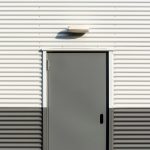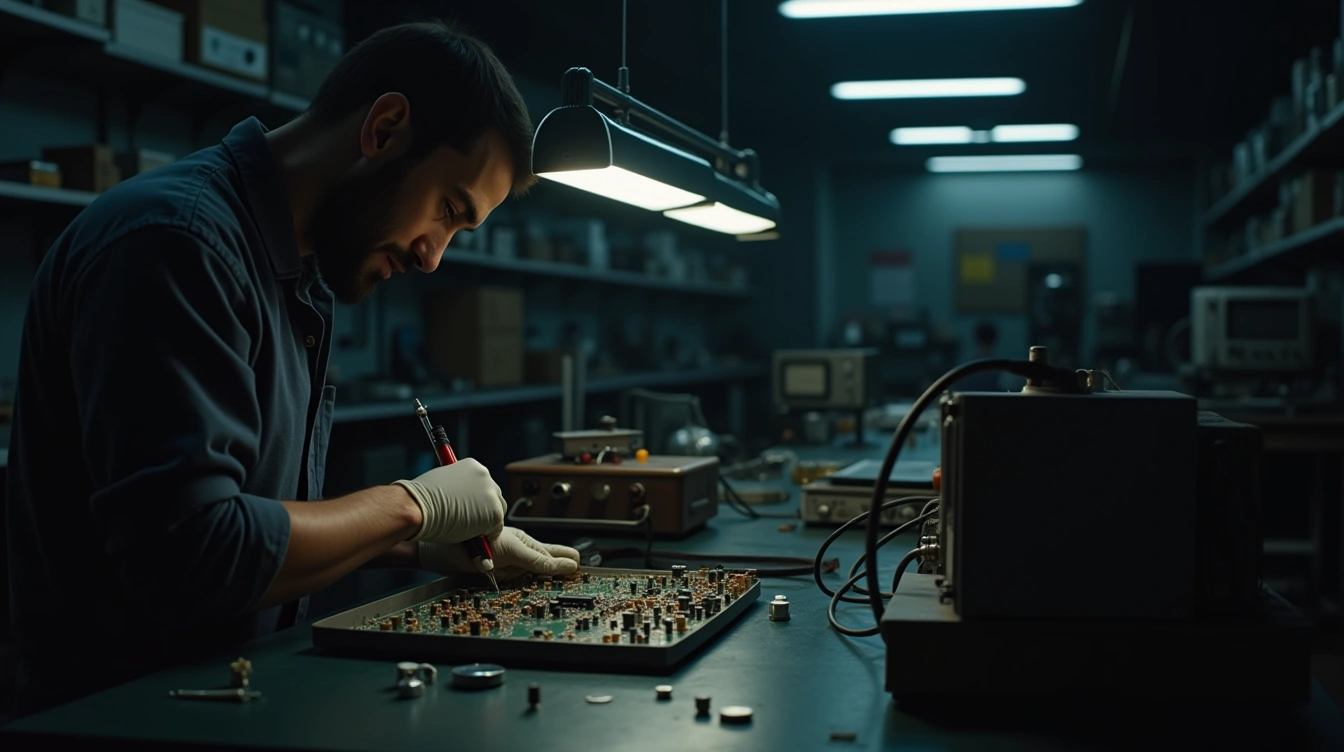Finding Reliable Suppliers for Industrial Electronic Components: Your Complete Guide
Industrial facilities face mounting pressure to maintain operational continuity while managing electronic component failures. According to a 2024 industry report by Plant Engineering, unplanned downtime costs manufacturers an average of $50,000 per hour, making supplier reliability crucial for business success.
How can you ensure your facility has access to dependable electronic components when critical systems fail? The answer lies in partnering with experienced suppliers who understand both the urgency of industrial repairs and the quality standards your equipment demands. Companies like https://www.2tech.fr/en/ combine component supply with repair expertise, offering comprehensive solutions that minimize downtime and maximize equipment lifespan.
In parallel : 5 Practical Tips for Improving Business Security
Key Criteria for Evaluating Industrial Electronics Vendors
Choosing the right industrial electronics vendor can make or break your production schedule. With critical equipment downtime costing manufacturers an average of $50,000 per hour according to recent industry studies, selecting a reliable partner becomes paramount to operational success.
Several key factors distinguish exceptional vendors from average suppliers in this specialized market:
In parallel : Reduce expenses effectively using solar energy for businesses
- Quality certifications – Look for ISO 9001, AS9100, or industry-specific standards that validate their quality management systems
- Real-time inventory – Vendors with transparent stock levels and immediate availability checks prevent costly delays
- Delivery guarantees – Express shipping options and confirmed delivery windows for urgent repairs
- Technical expertise – In-house engineers who understand your specific equipment and can provide application guidance
- Warranty coverage – Comprehensive guarantees on both new and refurbished components
- Track record – Proven reliability with similar industrial facilities and equipment types
- Sector specialization – Deep knowledge of your industry’s unique requirements and regulatory compliance needs
The best vendors combine these elements seamlessly, offering both immediate solutions and long-term partnership value for your facility’s electronic component needs.
Why Quality Matters When Purchasing Professional-Grade Electronic Equipment
In industrial environments, the quality of electronic equipment directly impacts your facility’s operational efficiency. When production lines depend on precise timing and consistent performance, substandard components create cascading failures that can halt entire operations for hours or even days.
Quality equipment significantly reduces maintenance costs over time. Professional-grade components typically last 3-5 times longer than their consumer counterparts, translating to fewer replacement cycles and reduced downtime. This extended lifespan becomes particularly crucial when considering the specialized nature of industrial electronics, where replacement parts may require longer lead times.
Regulatory compliance represents another critical factor. Industrial facilities must meet strict safety standards, and using certified, high-quality equipment ensures your operations remain compliant with industry regulations. Poor-quality components can compromise safety protocols, potentially resulting in costly violations or dangerous workplace incidents.
The security of your installations also depends on equipment quality. Reliable components maintain consistent performance under demanding conditions, preventing unexpected failures that could compromise both production schedules and worker safety. Investing in quality from the start proves more economical than dealing with frequent repairs and replacements later.
Replacement Parts vs. New Equipment: Making the Right Choice
Choosing between replacement parts and new equipment represents one of the most critical decisions in industrial maintenance. This choice directly impacts your operational budget, production continuity, and long-term facility performance.
Replacement parts typically offer immediate cost advantages, often running 30-70% less than new equipment purchases. They also provide faster deployment times, especially for common components where inventory is readily available. However, the reliability factor becomes crucial when evaluating older systems that may lack modern efficiency features or updated safety protocols.
New equipment brings enhanced performance capabilities, energy efficiency improvements, and comprehensive warranty coverage. The investment delivers predictable maintenance schedules and reduces unexpected downtime risks. Yet the higher upfront costs and potentially longer procurement timelines can strain budgets and production schedules.
Your decision should weigh the equipment’s remaining lifespan, criticality to operations, and total cost of ownership. For mission-critical systems approaching end-of-life, new equipment often proves more economical long-term. For newer systems with isolated component failures, quality replacement parts provide excellent value while maintaining operational reliability.
Ensuring Quick Delivery for Critical Manufacturing Operations
Manufacturing downtime costs industrial facilities thousands of dollars per hour, making rapid component delivery a business-critical capability. Emergency procurement strategies become essential when production lines depend on immediate equipment restoration.
Strategic partnerships with regional distributors create multiple supply channels for urgent requirements. These relationships enable same-day or next-day delivery options, significantly reducing the risk of extended production interruptions. Local distributor networks often maintain broader inventory selections than individual suppliers, increasing the likelihood of finding specific components immediately.
Maintaining strategic safety stock for high-failure components provides an additional buffer against unexpected breakdowns. Critical spare parts inventory should include frequently replaced items like contactors, drives, and control modules based on historical maintenance data.
Express shipping solutions and dedicated logistics partnerships ensure rapid component movement when standard delivery timeframes prove insufficient. Proactive communication with suppliers regarding urgent requirements enables them to prioritize orders and allocate resources effectively. Regular supplier performance reviews help identify the most reliable partners for emergency situations, creating dependable supply chains that support continuous manufacturing operations.
How Specialized Electronics Transform Industrial Automation Systems
Modern industrial automation systems depend heavily on specialized electronic components that deliver precision, reliability, and seamless integration. These advanced components fundamentally transform how manufacturing facilities operate, moving beyond basic functionality to create intelligent, responsive production environments.
Performance improvements become immediately apparent when facilities upgrade to specialized automation electronics. Variable frequency drives optimize motor control with microsecond precision, while advanced PLCs process thousands of inputs simultaneously without lag. These components reduce energy consumption by up to 30% while increasing throughput capacity significantly.
System integration reaches new levels of sophistication with purpose-built industrial electronics. Specialized communication modules enable real-time data exchange between disparate equipment manufacturers, creating unified control architectures. This seamless connectivity eliminates production bottlenecks and reduces the complexity of managing multiple automation protocols.
The scalability advantages of specialized components prove invaluable as operations expand. Modular designs allow facilities to add new production lines or upgrade existing systems without complete overhauls. This flexibility protects capital investments while enabling continuous improvement in manufacturing processes and operational efficiency.
Your Questions About Industrial Electronics Sourcing
Finding the right partner for industrial electronics can make or break your production schedule. These frequently asked questions address the most common concerns when sourcing critical components and services.
Where can I find reliable suppliers for industrial electronic components?
Look for suppliers with proven track records in industrial markets, proper certifications, and comprehensive repair services. Established distributors often provide both new and refurbished options with warranty coverage.
How do I choose the right industrial electronics vendor for my facility?
Evaluate their technical expertise, response times, inventory depth, and repair capabilities. Choose vendors who understand your specific industry requirements and offer ongoing support beyond the initial sale.
What should I look for when buying replacement parts for industrial equipment?
Verify part compatibility, warranty terms, and quality certifications. Ensure the supplier provides technical documentation and can guarantee authenticity of components to avoid costly equipment failures.
Are refurbished industrial electronics as reliable as new ones?
Quality refurbished components can match new equipment performance when properly tested and certified. Look for suppliers offering comprehensive warranties and detailed refurbishment documentation.
How can I ensure quick delivery of critical electronic components for production?
Partner with suppliers maintaining local inventory, offering emergency services, and providing real-time stock visibility. Establish preferred vendor relationships for priority handling during urgent situations.










